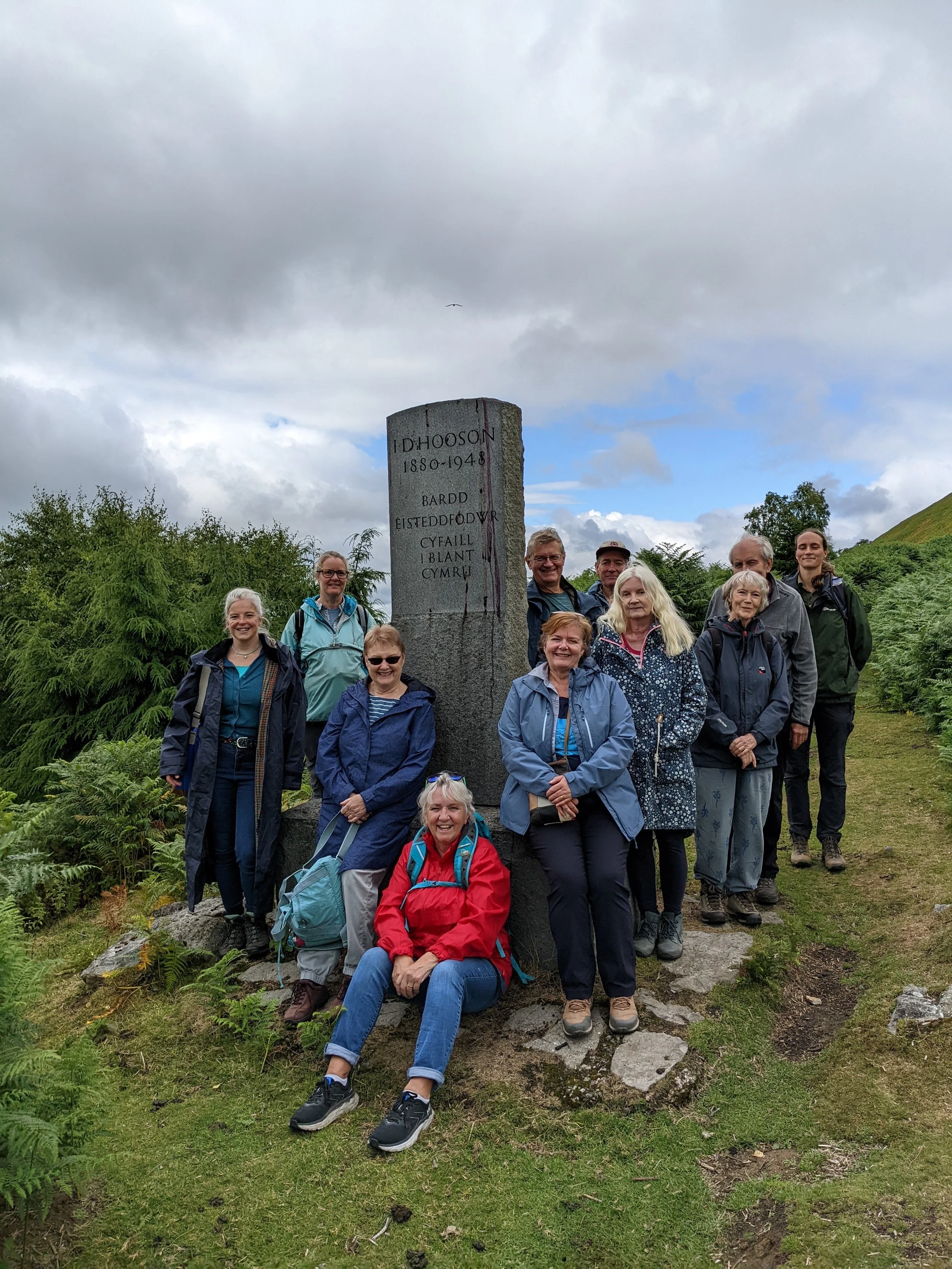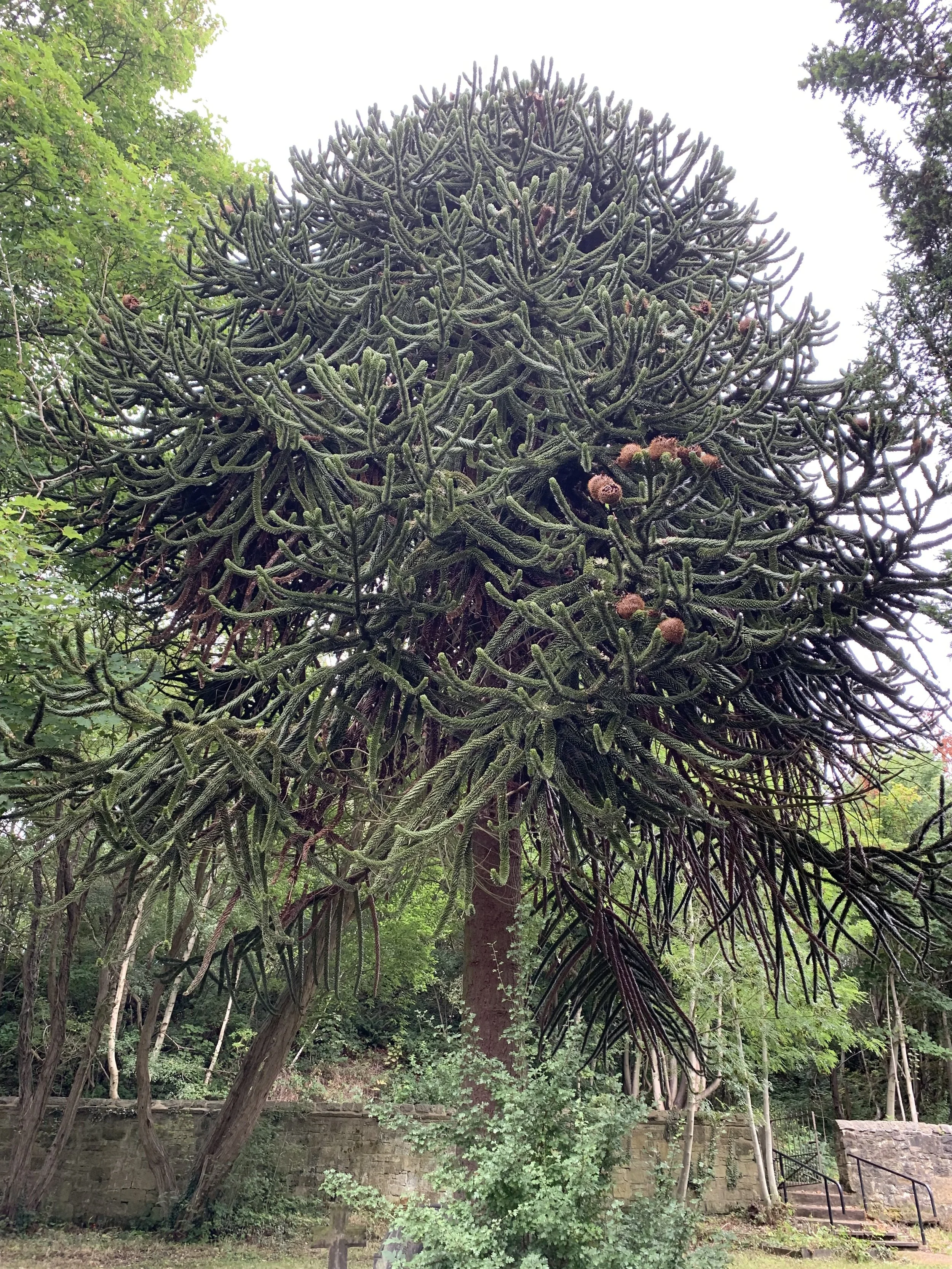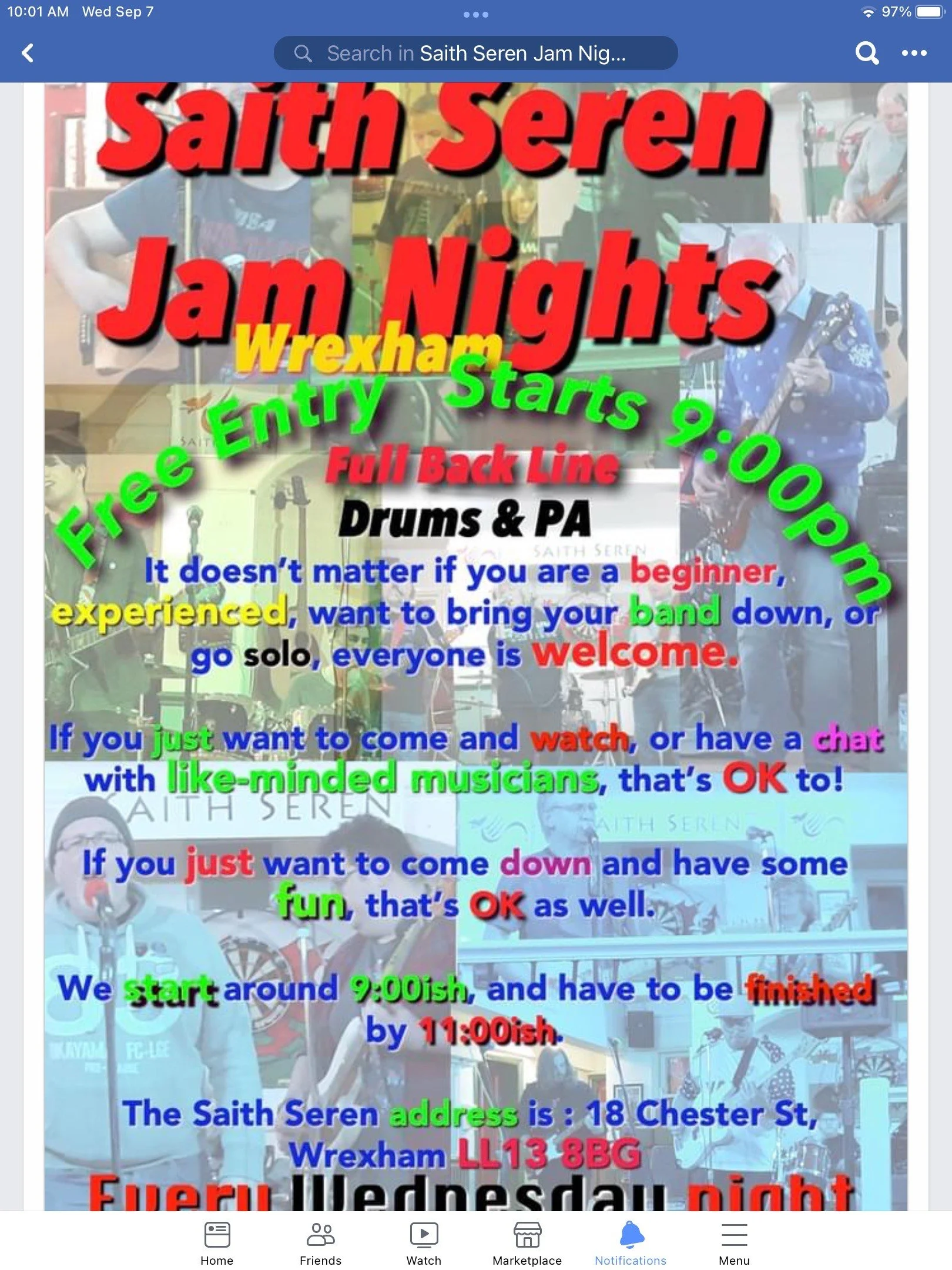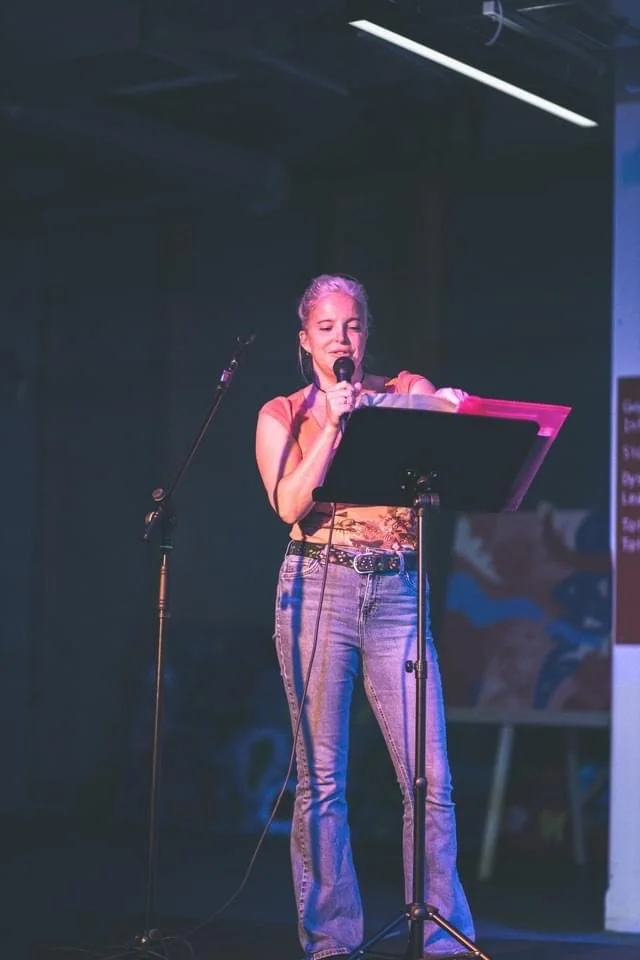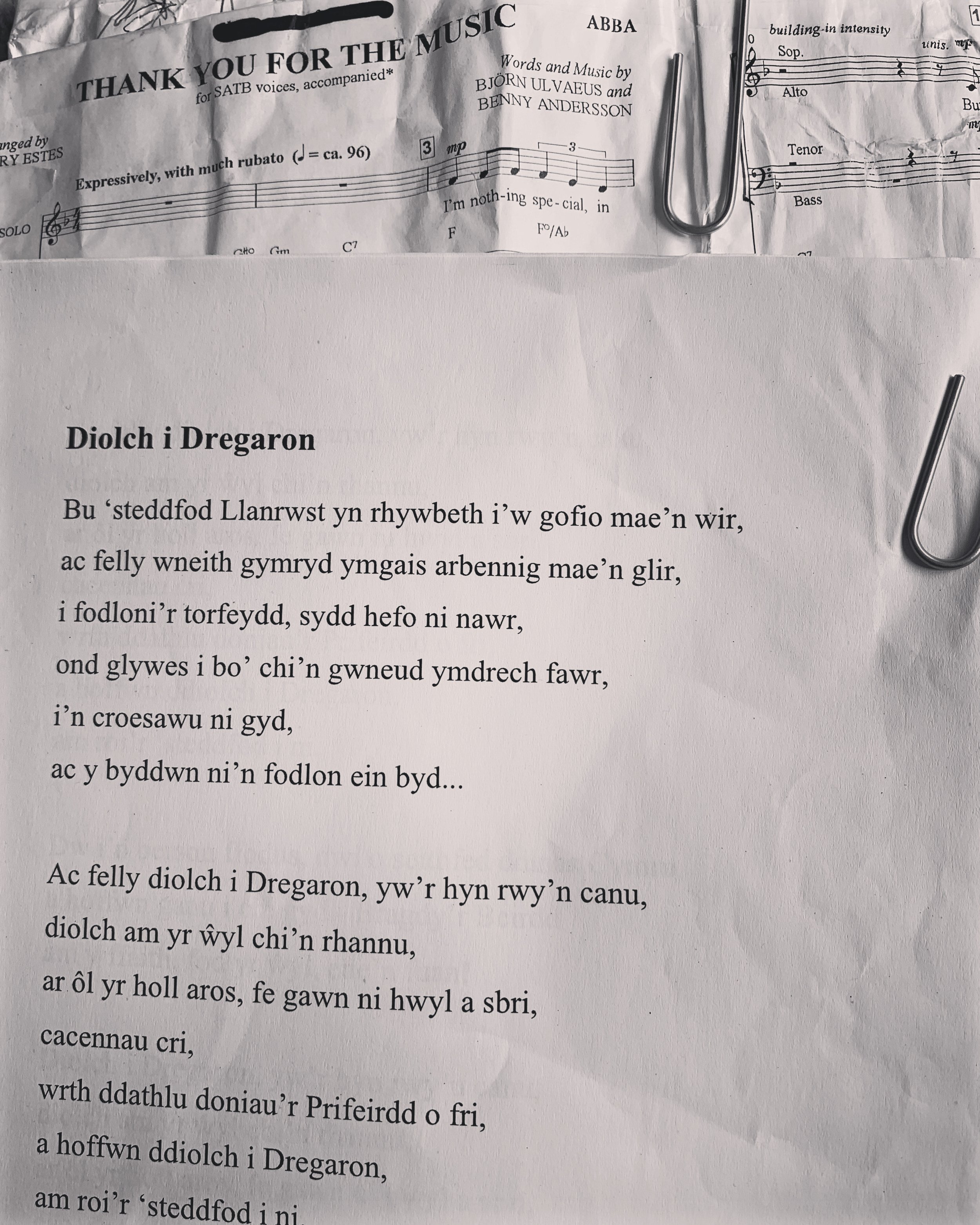
Y Gymraeg o dan yr wyneb
The Welsh Language under the surface
“Disgwyliwch yr annisgwyl, neu fyddwch chi ddim yn dod o hyd iddo”
“Expect the unexpected, or you won’t find it”
(Heraclitus)
Gan/by Sara Louise Wheeler
Mae'n rhyfedd sut mae pethau'n troi allan weithiau. Rwyf, ar adegau, wedi cael syniad ar gyfer prosiect neu ddigwyddiad, yna symud ymlaen â'r cynllun ac mae popeth wedi dilyn mwy neu lai y llwybr disgwyliedig. Fodd bynnag, nid dyma'r ffordd y mae pethau bob amser yn mynd, a dweud y gwir anaml y mae pethau'n mynd fel hyn, ac yn sicr roedd hyn yn wir gyda fy mhrosiect Utopias bach.
Deilliodd y cynllun gwreiddiol o gyfarfod ar hap â cherddor a oedd am gael rhywfaint o eiriau caneuon wedi'u cyfieithu fel y gallai ef a'i gyd-aelodau band eu perfformio. Siomais wrth glywed am yr anawsterau a gafodd wrth geisio dod o hyd i ddosbarthiadau Cymraeg addas iddo allu gwneud y gwaith ei hun, a hefyd wrth geisio ddod o hyd i siaradwr Cymraeg a allai wneud y cyfieithiad iddo.
Ymddengys mai’r mater allweddol yma oedd diffyg mynediad i’r Gymraeg. Yn fwy cyffredinol ar draws y sir (sydd bellach yn ddinas) roeddwn wedi bod yn gwrando ar naratifau am ddiffyg mynediad i gyfleoedd cyflogaeth ac yn wir unrhyw obaith neu hyder i gyflawni nodau bywyd. Roeddwn i'n teimlo efallai y gallwn i helpu.
Wnes i lunio cais syml iawn yn seiliedig ar gyfieithu geiriau ar gyfer y band roeddwn i wedi clywed amdano, gan feddwl y byddwn i wedyn yn ddod o hyd i fwy trwy’r modd ‘pelen eira’ - bandiau eraill trwy rhwydwaith y band gwreiddiol. Roeddwn hefyd yn gobeithio cynnal ychydig o weithdai ysgrifennu ar draws y ddinas i annog pobl i sianelu eu naratifau i ysgrifennu cerddi newydd yn Gymraeg, y gellid eu rhannu wedyn gyda bandiau lleol a allai eu perfformio fel caneuon.
It’s funny how things turn out sometimes. I have, on occasion, had an idea for a project or an event, then proceeded with the plan and everything has followed more or less the expected trajectory. However, this is not the way things always go, in fact it is rarely how things go, and this was certainly the case with my Utopias bach project.
The original plan emerged from a chance encounter with a musician who wanted to have some song lyrics translated so that he and his band mates could perform them. I listened in dismay as he told me of the difficulties that he had had in trying to find suitable Welsh classes for him to be able to do the work himself, and also in finding a Welsh speaker who could do the translation.
The key issue here appeared to be a lack of access to the Welsh language. More generally across the county (which is now a city) I had been listening to narratives about a lack of access to employment opportunities and indeed any hope or confidence in achieving life goals. I felt that I might be able to help.
I put together a very simple application based around translating lyrics for the band I had heard about, thinking I would then ‘snowball’ to other bands through their network. I also then hoped to host a few writing workshops across the city to encourage people to channel their narratives into writing new lyrics in Welsh, which could then be shared with local bands who could perform them.
Yr Awen o sach Modryb Venodotia
- The ‘Awen’ from the sack of Aunty Venodotia Mae enw’r prosiect yn deillio o’r darlun enwog o Gymru fel y Fonesig Venodotia/ Modryb Gwen (sy’n deillio o sir Gwynedd). Darlunnir Gogledd-ddwyrain Cymru fel sach ar ei chefn. Yn fy llun diwygiedig fy hun, rwy’n dangos yr ‘awen’ anadferadwy yn dianc o’i sach.
The name of the project derives from the famous drawing of Wales as Dame Venodotia/ Modryb Gwen (derivative of the county of Gwynedd). North-East Wales is depicted as a sack on her back. In my own revised drawing, I show the irrepressible ‘awen’ (poetic muse) escaping from her sack.
Prosiectau rhyng-gysylltiedig yn tynnu fy sylw ag achosi oedi
Dechreuais integreiddio fy hun i rwydwaith Utopias bach a mynychu cyfarfodydd i gael teimlad o sut roedd pethau'n gweithio wrth i mi ddechrau cynllunio fy mhrosiect. Fodd bynnag, arweiniodd sgwrs serendipaidd yn un o’r cyfarfodydd at cyfarfod ar wahân gyda’r prosiect ‘Ein tirlun darluniadwy’ yn Llangollen. Arweiniodd hyn yn ei dro at brosiect newydd a oedd yn gorgyffwrdd â chomisiwn a gefais i ysgrifennu cofnod geiriadur am I.D.Hooson, un o’r unig feirdd cyfrwng Cymraeg o ogledd-ddwyrain Cymru i’w wneud hi mewn i’r ‘cofnod ffosil’.
Wrth i mi baratoi’r deunydd ar gyfer taith lenyddol i fyny’r panorama lle gosododd yr Urdd garreg goffa i Hooson, darganfyddais ei bod yn 70 mlynedd i’r 13eg o Fedi 2022. Felly, ar ôl y daith lenyddol i’r panorama, fe ddechreuon ni drefnu digwyddiad yn llyfrgell Llangollen, ar y dyddiad ei hun, i nodi’r achlysur (ar adeg ysgrifennu hwn mae hyn ychydig ddyddiau i ffwrdd).
Roedd gennym ni ddigon o arian hefyd i gynhyrchu llyfryn bach oedd yn cynnwys y cyfieithiadau wnes i o’r cerddi a pheth gwybodaeth i fynd i becynnau addysg. Fel prosiect ar ei ben ei hun felly, bydd gwaith Hooson yn cyfrannu rhywfaint at agor y bardd cyfrwng Cymraeg hwn i gynulleidfa ddi-Gymraeg, a all helpu i hybu defnydd o’r Gymraeg yn yr ardal.
Yn y cyfamser, cefais ddau gyfarfyddiad a ddatgelodd efallai fod mwy o Gymraeg ychydig o dan yr wyneb yn y Gogledd-ddwyrain nag y byswn yn ei tybio, ac mae hyn yn rhoi gobaith i mi am ddyfodol fy mhrosiect. Roeddwn yn cynnal gweithdy barddoniaeth yn y llyfrgell i blant fel rhan o brosiect Gaeaf Lles. Roedden ni wedi meddwl na fyddai plant Wrecsam yn siarad Cymraeg, ond wrth i mi ddangos fy Instagerddi i un o’r plant a dechrau egluro am ‘Cofiwch Dryweryn’, dywedodd wrthyf ei bod yn siarad Cymraeg ac yn mynychu ysgol Gymraeg; wedi hynny ysgrifennodd un o'i cherddi yn Gymraeg.
Wedyn bûm allan yn Rhosymedre, yn cymryd rhan yn y prosiect ‘Ein Gerddi Cudd’ ac roeddwn yn frwdfrydig yn dweud wrth bawb wrth y bwrdd am fy mhrosiect I.D.Hooson. Wrth imi adrodd un o’i gerddi yn Gymraeg, roedd un o’r cyfranogwyr eraill yn paratoi i adael a daeth at ein bwrdd i ddychwelyd gwrthrych (siswrn dw i’n meddwl). Wrth iddi osod y gwrthrych ar y bwrdd, dywedodd “diolch” ac yna edrychodd fel ei bod wedi synnu – ni allaf fod yn siŵr oherwydd ni ofynnais, ond roedd yn ymddangos i mi nad oedd hi wedi bwriadu siarad Cymraeg, nac yn wir oedd hyn yn ymddygiad arferol, ond bod clywed Cymraeg wedi aildanio rhywbeth dan y wyneb – atgof o’r ysgol efallai, gan fod holl blant yr ardal wedi dysgu rhywfaint o Gymraeg yn yr ysgol ar un adeg. Mae o hefyd o gwmpas y ddinas mewn pocedi ac mewn digwyddiadau. Gwnaeth hyn i mi feddwl pa mor hawdd y gallai fod i ailysgogi'r sgiliau Cymraeg hyn, dim ond trwy gyflwyno ychydig eiriau a gweithgareddau allweddol.
Side-tracked by interconnected projects
I began ingratiating myself into the Utopias bach network and attending meetings to get a feel for how things worked as I began to plan my project. However, a serendipitous conversation at one of the zoom meetings led to me having a meeting with the ‘Our Picturesque Landscape’ project in Llangollen. This in turn led to a new project which overlapped with a commission I had received to write a dictionary entry about I.D.Hooson, one of the only Welsh medium poets from the North-East of Wales to make it into the fossil record.
As I prepared the materials for a literary tour of the panorama where the Urdd placed a memorial stone to him, I discovered that it was 70 years to this September 13th. So, after the literary tour to the panorama, we began organizing an event in the Llangollen library, on the date itself, to mark the occasion (at the time of writing this is a few days away).
We also had enough funding to produce a small booklet which included the translations I did of the poems and some information to go into education packs. As a stand-alone project then, the Hooson work will go some way to opening up this Welsh-medium poet to a non-Welsh speaking audience, which may help in promoting use of the Welsh language in the area.
In the meantime, I had two encounters which revealed that there is perhaps more Welsh just under the surface in the North-East than we might think, and this gives me hope to the future of my project. I was holding a poetry workshop in the library for children as part of the Winter of Wellbeing project. We had thought that the children in Wrexham would not be Welsh speakers, but as I showed my Instapoems to one of the children and began explaining about ‘Cofiwch Dryweryn’, she told me that she was a Welsh speaker and attended a Welsh school; she subsequently wrote one of her poems in Welsh.
Then I was out in Rhosymedre, taking part in the ‘Our Hidden Gardens’ project and I was enthusiastically telling everyone at my table about the I.D.Hooson project. As I recited one of his poems in Welsh, one of the other participants was preparing to leave and she approached our table to return an object (I think it was some scissors). As she placed the object on the table, she said “diolch” and then looked surprised – I can’t be sure because I didn’t ask, but it seemed to me that she had not meant to speak Welsh, nor indeed was this usual behaviour, but that hearing Welsh had triggered something just under the surface – a memory from school perhaps, since all children in the area will have learnt some Welsh at school.
It is also all around the city in pockets and at events. This got me thinking about how easy it might be to reactivate these Welsh language skills just by introducing a few words and key activities.
Geiriau Cymraeg i ganeuon cyfarwydd
Tra roedd hyn i gyd yn mynd ymlaen, roeddwn wedi dychwelyd cwpl o weithiau i safle fy sgwrs gyntaf am gyfieithu geiriau caneuon, gan obeithio cyflwyno fy mhrosiect, ond ni fues i'n ddigon ffodus i daro mewn i'r cerddor gwreiddiol. Wedyn roedd angen paratoi cerdd neu gân at 'Bragdy'r beirdd' yn yr Eisteddfod Genedlaethol, felly defnyddiais y gân ABBA Thank you for the music' fel templed a sgwennais cân fach syml, fwyn o'r enw 'Diolch i Dregaron ', gan ddiolch i Dregaron am roi'r ‘steddfod i ni, ar ôl dwy flynedd o aros. Chwaraeodd un o fy ffrindiau y cyfeiliant piano a chafodd dderbyniad eithaf da.
Wedi dychwelyd o’r Eisteddfod, clywais fod ‘Jam nights’ yn nhafarn gymunedol y Saith Seren a phenderfynais fynd draw i ddefnyddio’r gân ‘Diolch i Dregaron’ fel ffordd o hysbysebu fy mhrosiect cyfieithu geiriau caneuon. Rhaid cyfaddef, roedd fy mherfformiad braidd yn anarferol i’r cyd-destun. Rocwyr oedd y rhan fwyaf o’r perfformwyr, yn beltio allan ganeuon megis ‘Summer of ’69’, ‘Born to be wild’, a chlasuron eraill, ynghyd â llawer o chwarae gitâr odidog o grensiog, egni cryf, a naws wrthryfelgar cyffredinol. Yna cymerais y meic a chanu cân ABBA, ‘acapella’, yn y Gymraeg! Fodd bynnag, mae’n ymddangos bod ABBA yn fwy poblogaidd nag y byddech chi’n ei feddwl gyda’r dorf yma, gan eu bod nhw’n canu’n llawen gyda’r geiriau Saesneg, a mi wnaeth un person gofyn i mi ganu ‘The winner takes it all’ y tro nesaf – felly mae hynny nawr ar fy rhestr o eiriau caneuon i'w cyfieithu.
Ar ddiwedd y noson, wnes i cwrdd ag un o’r bobl oedd yn ymwneud â rhedeg y dafarn, a chawsom sgwrs ddifyr am yr iaith Gymraeg a’r ffaith ei fod wedi’i dysgu yn yr ysgol a’i ymdrechion i gael mynediad at gymorth a deunyddiau nawr fel oedolyn. Gofynnodd i mi a oeddwn yn gwybod am y podlediadau Cymraeg gorau ar gyfer dysgu Cymraeg ac fe enwais gwpl, er fy mod hefyd ar hyn o bryd wrthi'n sefydlu podlediad o'r fath gydag un o fy ffrindiau (mwy o fanylion mewn blog yn y dyfodol!)
Yn y cyfamser, dwi hefyd wedi dechrau mynychu nosweithiau meic agored ‘Voicebox’ unwaith y mis yn ‘Tŷ Pawb’, a dwi wedi darllen cerddi Cymraeg ac yna’r fersiynau Saesneg yno, a hefyd dwi wedi canu rhai caneuon gwerin Cymraeg. Rwy’n bwriadu defnyddio’r platfform hwn i berfformio fy nghaneuon wedi’u cyfieithu a hysbysebu fy mhrosiect geiriau caneuon Cymraeg, gan gynnwys helpu pobl i ysgrifennu cerddi a chaneuon gwreiddiol. Mae hyn yn teimlo'n eithaf hylaw o ystyried ei bod yn ymddangos bod cymaint o'r Gymraeg reit o dan yr wyneb, mewn trwmgwsg efallai, ond heb ei anghofio na’i golli yn gyfan gwbl. Mae’n cyfnod cyffrous o'n blaenau a byddaf yn rhannu fy nghynnydd ag ypdêts mewn postiau blog fel hyn yn y dyfodol.
Welsh lyrics to familiar songs
Whilst all of this was going on, I had returned a couple of times to the site of my first conversation about lyric translation, hoping to introduce my project, but I was not lucky enough to bump into the original musician. Then I needed to prepare a poem or song for ‘Bragdy’r beirdd’ at the National Eisteddfod, so I used the ABBA song ‘Thank you for the music’ as a template and wrote a simple, sweet little song called ‘Diolch i Dregaron’, thanking Tregaron for giving the Eisteddfod to us, after two years of waiting. One of my friends played the piano accompaniment and it was quite well received.
When I returned from the Eisteddfod, I heard that there were ‘Jam nights’ at the Saith Seren community pub and I decided to go along and use the song ‘Diolch i Dregaron’ as a way to advertise my lyric-translation project. Admittedly, my performance was somewhat unusual for the context. Most of the performers were rockers, belting out songs such as Summer of ’69, Born to be wild, and other classics, accompanied by lots of gloriously crunchy guitaring, strong energy, and a general rebellious vibe. Then I took the mic and sang an ABBA song, acapella, in Welsh! However, it appears that ABBA are more popular than you might think with this crowd, as they cheerily sang along with the English lyrics, and I had a request to sing ‘The winner takes it all’ next time – so that is now on my list of lyrics to translate.
At the end of the evening, I got talking to one of the people involved in running the pub, and we had an interesting conversation about the Welsh language he had learnt at school and his efforts to access support and materials now as an adult. He asked me if I knew of the best Welsh podcasts for learning Welsh and I named a couple, though I am also currently engaged in setting up such a podcast with one of my friends (more details in a future blog!)
Meanwhile, I have also begun attending ‘Voicebox’ open mic evenings once a month at Tŷ Pawb, and I have read out Welsh poems and then the English versions, and also I have sung some Welsh folk songs. I plan to use this platform to perform my translated songs and advertise my Welsh lyrics project, including helping people to write original poems and songs. This feels quite manageable given that there seems to be so much Welsh language just under the surface, dormant but not forgotten. There are exciting times ahead and I shall share my progress in future blogs.

